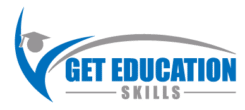A Comprehensive Guide to Key Aspects of Education
A Comprehensive Guide to Key Aspects of Education
Blog Article

Education is a fundamental pillar in shaping individuals' futures, impacting their personal and professional lives. This guide explores essential aspects of education, including vital skills, examination strategies, career planning, and college preparation, providing valuable insights for students, educators, and professionals alike.
1. The Importance of Education
Education extends beyond traditional learning; it is a transformative process that cultivates intellectual, social, and emotional growth. From early childhood to higher education and lifelong learning, education equips individuals with the knowledge, skills, and values needed to navigate life’s complexities and contribute meaningfully to society.
2. Core Education Skills
To succeed academically and professionally, developing key skills is essential:
Critical Thinking: The ability to analyze information, question assumptions, and make well-informed decisions.
Effective Communication: Articulating ideas clearly and persuasively, both in writing and verbally.
Problem-Solving: Identifying problems and devising practical solutions.
Time Management: Organizing tasks and managing time efficiently to meet deadlines and achieve objectives.
Digital Literacy: Proficiency in using digital tools and technology to enhance learning and productivity.
Mastering these skills not only improves educational outcomes but also prepares individuals for various challenges in their personal and professional lives.
3. Strategies for Exam Preparation
Effective exam preparation is crucial for academic success. Consider these strategies:
Understand Exam Formats: Familiarize yourself with different types of exams, including multiple-choice, essay, and practical tests.
Develop a Study Plan: Create a structured schedule that allocates time for reviewing material and practicing problems.
Utilize Study Resources: Use textbooks, online resources, and practice exams to reinforce your understanding.
Manage Exam Stress: Practice relaxation techniques and maintain a balanced study routine to reduce anxiety and enhance performance.
Proper preparation helps improve exam results and deepens understanding of the subject matter.
4. Career Planning and Development
Career planning is vital for achieving long-term professional goals. Key steps include:
Self-Assessment: Evaluate your interests, strengths, and values to identify suitable career paths.
Explore Career Options: Research various professions, including click here their requirements, responsibilities, and growth potential.
Skill Building: Gain relevant qualifications, experience, and skills through education, internships, and projects.
Networking: Connect with industry professionals and mentors to gain insights and discover opportunities.
A strategic approach to career planning ensures alignment between your educational efforts and career aspirations.
5. Utilizing Online Career Resources
The digital age offers numerous tools for career advancement:
Job Search Engines: Websites like Indeed, Glassdoor, and LinkedIn provide job listings and company reviews.
Professional Networking Sites: Platforms such as LinkedIn help build connections and explore job opportunities.
Online Learning Platforms: Sites like Coursera, edX, and Udemy offer courses and certifications to enhance skills and qualifications.
Leveraging these online resources can streamline job searches and career development.
6. Preparing for College
College preparation is a crucial step in higher education. Key aspects include:
Research Institutions: Compare colleges based on their programs, campus life, and location.
Application Process: Prepare necessary application materials, including personal statements, essays, and recommendation letters.
Financial Planning: Understand tuition costs and explore financial aid options, scholarships, and grants.
Effective preparation can significantly impact your college experience and future career opportunities.
7. Supporting Educators
Educators play a vital role in facilitating effective learning. Key aspects of successful teaching include:
Lesson Planning: Develop engaging lessons that align with curriculum goals.
Classroom Management: Create a positive learning environment that supports student engagement and development.
Student Assessment: Regularly assess and provide feedback to help students improve and grow.
Supporting educators with adequate resources and professional development ensures a high-quality educational experience for students.
8. The Value of General Education
General education provides a broad foundation of knowledge and skills:
Literacy and Numeracy: Fundamental skills in reading, writing, and mathematics.
Social Studies: Knowledge of historical, geographical, and civic contexts.
Science and Technology: Understanding of scientific concepts and technological advancements.
A solid grounding in general education prepares individuals for a variety of life opportunities and supports lifelong learning.
Conclusion
Education is a dynamic and comprehensive journey that encompasses essential skills, exam preparation, career planning, and college readiness. By focusing on these critical aspects and utilizing available resources, individuals can enhance their educational experiences and achieve their goals. For more information and resources, visit Get Education Skills.